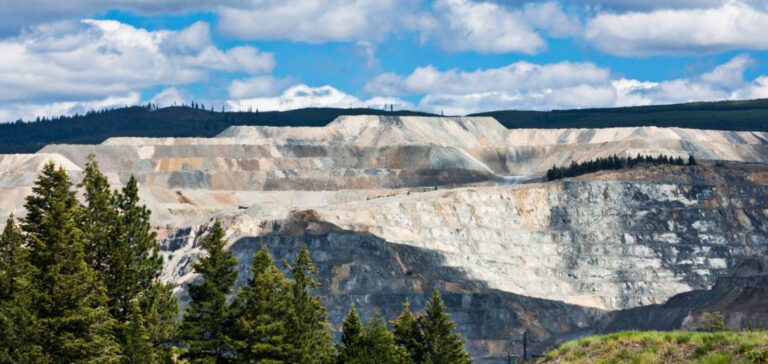Canada is reinforcing its commitment to the development of critical minerals by investing heavily in energy infrastructure and research. This $43.5 million funding, announced by Minister of Energy and Natural Resources Jonathan Wilkinson, is part of a national strategy aimed at ensuring the country’s energy and industrial sovereignty in response to the growing demand for these strategic resources.
Energy Infrastructure to Secure Supply
Out of the total announced funds, $39.8 million is allocated to six energy and transportation infrastructure projects essential for the exploitation of critical minerals. Among them, Critical Elements Lithium Corporation receives $20 million for the construction of a main electrical station and the relocation of a 4.2-kilometer transmission line to power its Rose Lithium-Tantalum project in Eeyou Istchee Baie-James.
Dumont Nickel will receive $1.1 million for a feasibility study on connecting its nickel and cobalt project to the Hydro-Québec network via an eight-kilometer transmission line. Meanwhile, Sayona Nord Inc. obtains $1.3 million to develop a 55-kilometer power transmission line to support its Moblan project.
An Energy Policy Integrating Strategic Infrastructure
The federal investment also includes support for the development of essential transportation infrastructure providing access to mining deposits. Eskan Company, an Indigenous-owned business, receives $13.5 million to evaluate the extension of a road leading to lithium mining projects in Eeyou Istchee Baie-James. Additionally, Cbay Minerals Inc. benefits from $1.3 million for feasibility studies related to building roads and power lines that will facilitate the exploitation of the Corner Bay and Devlin deposits.
Commerce Resources is also granted $2.6 million to assess the feasibility of a 1,760-kilometer road connecting the Ashram rare earths and fluorspar project in the Nunavik region. These investments aim to improve connectivity between mining sites and strategic markets.
Increased Support for Innovation in Mineral Processing
Alongside energy infrastructure, the federal government is investing $3.7 million through the Critical Minerals Research, Development, and Demonstration (CMRDD) program. COALIA, a beneficiary of these funds, will test an innovative process for extracting and purifying lithium from spodumene using nitric acid. This technology could optimize lithium recovery while minimizing waste.
This funding supports the industrialization of extraction processes, a key element in strengthening the national supply chain and ensuring secure access to critical minerals essential to strategic industries such as electronics, aerospace, and automotive.
A Structured Federal-Provincial Cooperation
These investments are part of the Quebec-Canada Collaboration Table on Energy and Resources, an initiative designed to coordinate the actions of both governments to optimize the development of the critical minerals sector.
By consolidating its energy infrastructure and supporting research, Canada aims to enhance its competitiveness against major global producers of critical minerals. This energy policy seeks to secure the country’s supply while strengthening the strategic autonomy of national industries.






















